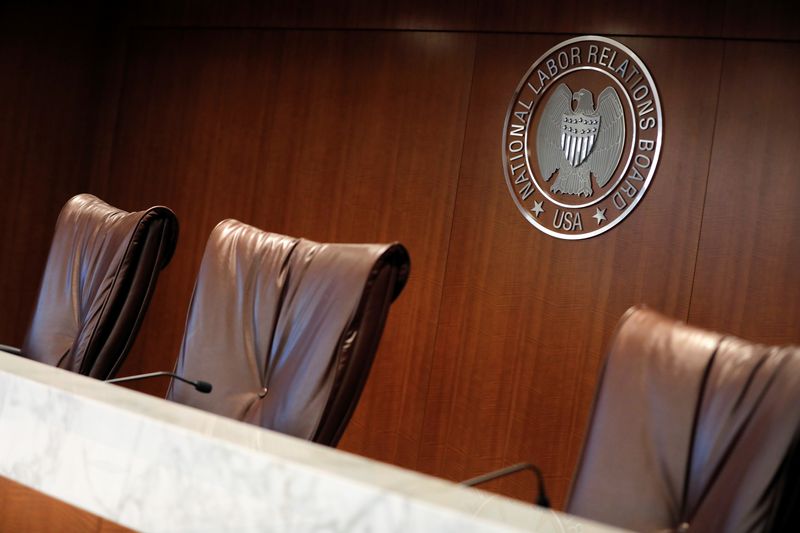[ad_1]
By Nate Raymond and Daniel Wiessner
(Reuters) – The U.S. National Labor Relations Board on Friday dropped its appeal of a judge’s ruling striking down a rule that would have treated many companies as employers of certain contract and franchise workers and require them to bargain with unions representing them.

The NLRB in a filing told the New Orleans-based 5th U.S. Circuit Court of Appeals that it continues to believe its „joint employers” rule complies with federal labor law but has decided to withdraw its appeal of a lower-court judge’s March ruling.
The agency said that given the current litigation posture of the rule, it had decided it instead wanted the opportunity to further consider the issues identified in the ruling by U.S. District Judge J. Campbell Barker in Tyler, Texas.
The rule issued in October, 2023, would have treated companies as „joint employers” of contract and franchise workers when they have control over key working conditions such as pay, scheduling, discipline and supervision, even if that control is indirect or not exercised.
Joint employment has been one of the most contentious labor issues for many U.S. businesses for years. The 2023 rule replaced a Trump-era regulation the board adopted in 2020 requiring companies to have „direct and immediate” control over workers in order to be considered joint employers, which was favored by business groups. The 2020 rule had replaced an Obama-era standard heavily criticized by business groups.
Barker, an appointee of Republican former President Donald Trump, had sided with challengers to the rule, including the U.S. Chamber of Commerce in finding the rule was too broad and violated federal labor law.
Barker said the rule was invalid because it would treat some companies as the employers of contract or franchise workers even when they lacked any meaningful control over their working conditions.
The NLRB’s decision to abandon its defense of the rule in court marked an about-face for the agency, after Democratic President Joe Biden in May vetoed a Republican-backed measure that would have repealed the rule.

The NLRB and many unions have said the rule is needed to ensure that companies come to the bargaining table and can be held liable for labor law violations when they have control over the working conditions of these contract or franchise workers.
But business groups and many Republicans have said it would create confusion over when businesses are considered workers’ employers, disrupting franchising and routine contracting arrangements.
[ad_2]
Source link

